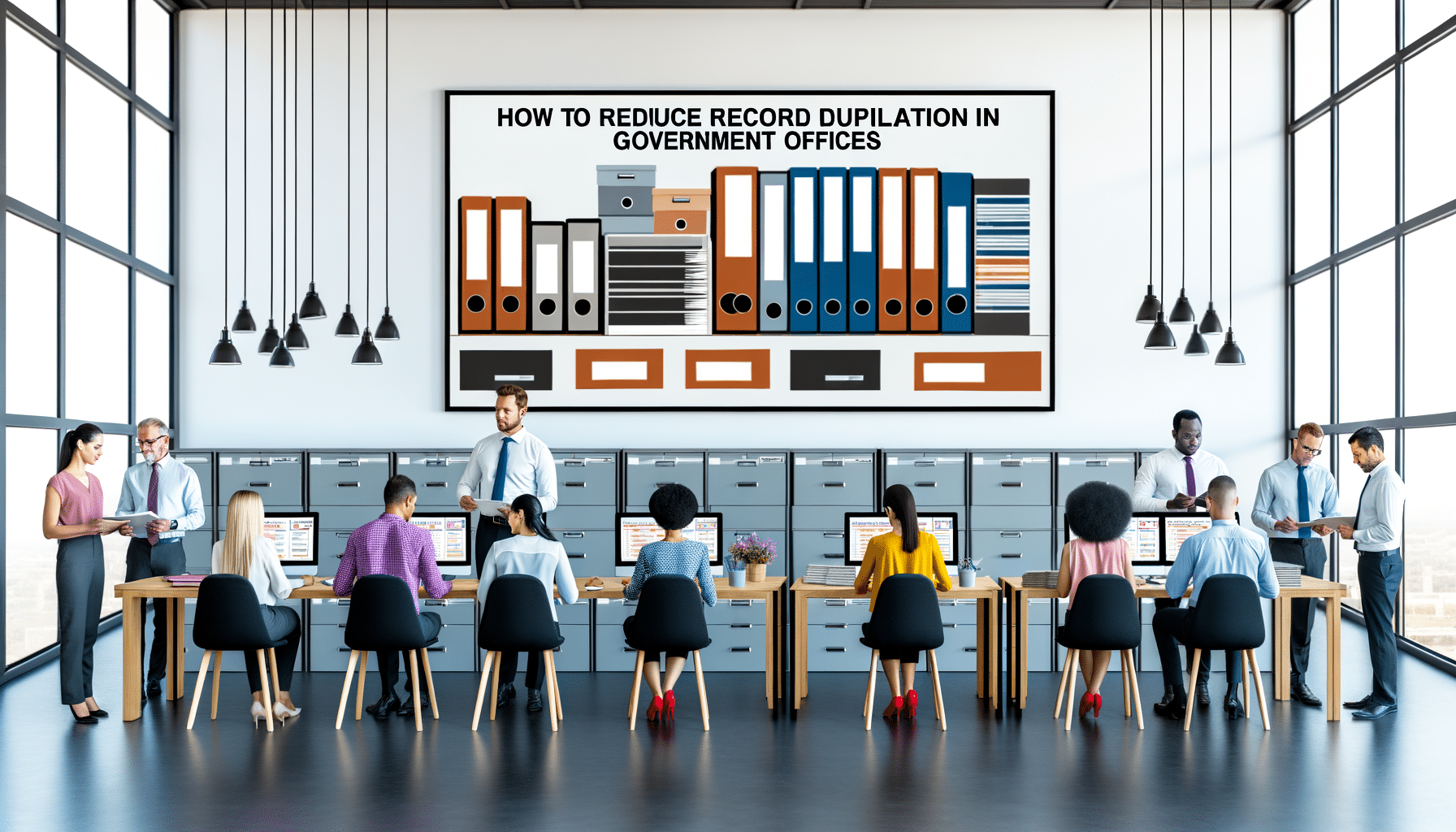In today’s fast-paced digital world, government offices are tasked with the acquisition, processing, and storage of voluminous records. As someone who embarked on the journey with RecordsKeeper.AI, I understand the complexity and sheer scale of this responsibility. However, managing these records efficiently is critical, especially when duplication is involved—a challenge that many government departments face. Let’s explore how to minimize this issue and enhance efficiency.
Understanding Record Duplication
Record duplication occurs when identical copies of the same document exist in different locations or files within a system. This can inflate storage needs, complicate data retrieval, and increase the risk of misinformation due to discrepancies among copies. With my experience launching RecordsKeeper.AI, I recognize the gravity of this issue, especially in government circles where accuracy and precision are paramount.
Impact of Record Duplication
Before diving into solutions, it’s essential to recognize how record duplication can impact operations:
- Inefficiency: Searching for the correct document becomes more time-consuming when duplicates exist.
- Increased Costs: More storage space and resources are needed to maintain excess copies.
- Regulatory Risks: Inconsistent records could lead to non-compliance with regulations like GDPR or HIPAA.
Strategies to Minimize Record Duplication
I have learned through my entrepreneurial journey and the development of RecordsKeeper.AI that preventing duplication is a multifaceted endeavor. By implementing the following strategies, government offices can significantly reduce this challenge:
1. Automate Record Management Processes
Leveraging technology to automate the categorization and organization of records can drastically minimize duplication. AI, like the one powering RecordsKeeper.AI, can swiftly identify and tag records, ensuring they are stored correctly without redundancy. This strategic use of technology reduces human error and operational overhead.
2. Establish Clear Protocols
Developing and enforcing strict file naming conventions and record storage protocols is crucial. When government employees adhere to a standardized naming system, the likelihood of creating duplicate records diminishes. This practice not only helps in maintaining a single source of truth but also streamlines data retrieval.
3. Regular Audit and Clean-up
Set aside regular intervals to conduct audits and remove duplicate records. By doing so, offices can reclaim storage space and ensure that only necessary, verified documents are retained. Utilizing systems that offer audit logs, such as RecordsKeeper.AI, can simplify this process while ensuring that compliance standards are met.
4. Implement Controlled Access
Implementing secure data rooms where sensitive records are stored allows for controlled access. By limiting who can alter or add records, the risk of duplication is minimized. With real-time activity tracking, as seen in RecordsKeeper.AI, government offices can monitor changes and manage user permissions efficiently.
5. Encourage a Culture of Responsibility
Encourage employees to be vigilant about the records they create and manage. Training and awareness programs can empower staff to recognize the signs of duplication and take proactive measures. This culture of responsibility can lead to more careful handling of all records, reducing unnecessary duplicates.
The Role of Blockchain in Ensuring Data Integrity
One aspect that I am particularly passionate about is leveraging blockchain technology for secure, immutable records. By integrating blockchain, as we do at RecordsKeeper.AI, government offices can ensure the integrity of their data, making record duplication less likely and more detectable due to the visibly unchangeable nature of blockchain-logged data.
Conclusion
It’s evident that minimizing record duplication is crucial for increasing efficiency in government offices. By adopting a comprehensive approach that combines robust technology with strategic policy implementation, the challenge can be met head-on. As I continue to innovate at RecordsKeeper.AI, my goal remains to simplify record management, making it a strategic advantage rather than a burden.
If you’re intrigued by how RecordsKeeper.AI can enhance your office’s record management solutions or if you’d like more insights from my entrepreneurial journey, I invite you to connect and follow along for more valuable insights.








